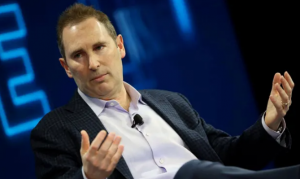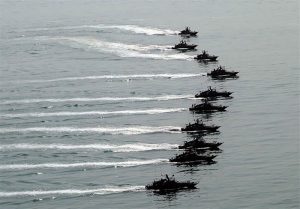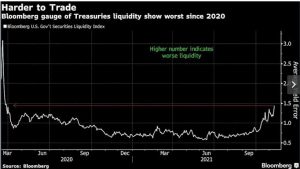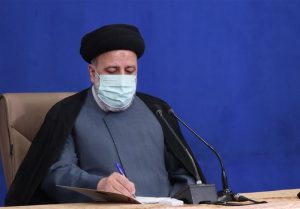Traders of the Lost Ark -A Powerless WTO
20 min readThe World Trade Organization is the favorite whipping boy the antiglobalists. Far-reaching decisions about the World’s poorest are made by the richest here – behind closed doors. Yet its founding idea was one worldwide prosperity fostered by unlimited trade.
The day that shakes up the global economy, the day Boeing launches a trade war against Airbus, the day the United States files a complaint about illegal subsidies against the European Union is just another day for Moussa B. Nebie.
Moussa B. Nebie has more important issues to deal with in Geneva. He sits in his cramped, dark office on the ground floor of Louis-Dunant Way No. 7, facing a flag of Burkina Faso. He makes phone calls to officials in his home country; he has meetings with his African colleagues; and he writes reports – about cotton, not Boeing.
“Cotton is the only thing that matters to us,” says Nebie, who has been Burkina Faso’s ambassador to the World Trade Organization in Geneva for the past year. Burkina Faso cares about cotton, because a quarter of all its citizens – roughly three million of the West African country’s residents – depend solely on cotton production and trade for their livelihoods. For them, it is a question of stark survival. But thanks to the agricultural lobby in America’s southern states – which supported the Bush administration in the 2004 presidential election – a few thousand cotton farmers in Texas and Arkansas now receive subsidies of more than $3 billion a year. And because farmers in the United States receive subsidies, prices are falling and countries like Burkina Faso cannot export their most important product. From the losers’ perspective, the global economy is desperately cruel.
The United States and Europe talk a lot about open markets, but they mean other countries’ markets, not their own, says ambassador Nebie. “It’s access they want,” says Nebie. Europe and the United States want to keep other countries at arm’s length so as to protect their own farmers. “Liberalization has to mean the same thing for everyone,” says Nebie. That’s why he tries to keep his coalition of the weak – the cotton coalition of Mali, Chad, Benin, and Burkina Faso – from falling apart. Nebie smiles, and his secretary serves Granini, a German multi-fruit drink – no deposit, no return. “We’re not the ones who are blocking things,” Nebie says. “But we will stop any consensus in the World Trade Organization that does not take the interests of our farmers into consideration.”
The theory of the global economy seems quite simple. World trade helps fight poverty, because open borders and the dropping of tariffs benefit everyone. So world trade is a kind of game in which all nations can be the winners. This is the theory underlying the WTO. It is also the organization’s religion, a creed formulated on the banks of Lake Geneva looking out towards Europe’s highest peak, Montblanc.
The reality is more sobering: Burkina Faso head-to-head with the United States. In the real world, a delegate like Nebie has to prevent his country from making one of Geneva’s black lists, those long secret registers of people who dared to inconvenience the United States. He has to make sure that no American official makes a call to Ouagadougou, his capital, to say – regretfully, of course – that the delegate for Burkina Faso is a bad envoy and should be recalled to prevent damaging relations between the two countries.
The global economy is just not that simple. It is a game of feints and traps, of threats and inducements, a game with false bottoms and ever-shifting alliances. And the playing field, or the battleground, is a square, gray building with a red and green roof and a courtyard. On its northern side is an annex, another squarish building with a second courtyard. Here on the lakefront at 154, Rue de Lausanne, in the four-story William Rappard Center, is the control center of globalization: the office of the WTO secretariat.
The WTO likes to see itself as the United Nations of Trade. All 148 members, from Lesotho to the United States, have one vote each, and all decisions must be made unanimously. Viewed charitably, the WTO is the ultimate democracy, an organization committed to human rights and the environment, striving to create a fair world order where hunger no longer exists. WTO documents contain an eye-popping statistic: If the world’s tariffs disappeared, an additional $500 billion would immediately flow into global trade. There would be plenty of pieces from this pie for everyone.
The fact is, however, that few organizations, not even the World Bank or the International Monetary Fund, are reviled as much as the WTO. As in 1999 in Seattle, less so in Doha in 2001, but even more so in Cancún in 2003 – when the WTO’s Ministerial Conference meets, hundreds of reporters head off to cover its big story: the tens of thousands of demonstrators. In the end, these conferences founder in a sea of empty words, unanswered questions and, above all, eternal conflicts between rich and poor, North and South. That’s why the enemies of the WTO see it more as the opposite of the United Nations, as the United States of Capitalism: hegemonic, aggressive, and dogmatic.
The truth, of course, lies somewhere in between. On the one hand, the WTO cannot be as noble as its proponents say. Why, otherwise, would so many African delegates in Geneva say they have rarely heard anything more oxymoronic than the marriage of the words “global economy” and “democracy”? On the other hand, as even those who don’t automatically condemn anyone uttering the word “globalization” will surely understand, the WTO lacks the teeth needed to make it the Satan of the modern world. It is not a company and it is not a political party. It is merely a sort of agency. In fact, it is really only an agreement. Founded in 1995 as the successor to the General Agreement on Tariffs and Trade (GATT), the World Trade Organization should really be called the World Trade Agreement.
The WTO does not actually exist as an organization, because everything devolves into 148 parts and its members make all the decisions. The director general barely has any authority and certainly no real powers. His control stops at the staff in his secretariat and they are supposed to be a purely neutral bureaucracy. The people at the WTO often ask, “What staff?” They find it funny because the WTO has a miserably small staff (608, many of them translators) and no budget to speak of (110 million a year) – at least compared with the United Nations, the World Bank or the International Monetary Fund, which alone has 2,700 employees.
The WTO moves slowly because the people in Hall D can argue for three hours over whether to change the word “should” on page 4 to “must” or “could.” The founding treaty of the organization itself is a tome of 27,000 pages. Yet the rules that the Geneva-based body sends sailing out into the world shape our lives: They regulate labor markets, imports and exports, and they deal with agriculture, textiles, services and patents. They have an impact on our income and tax levels, and they determine which goods we may buy and how expensive they are. Somewhere, buried deep in these regulations, we might even discover who is going to win the trade war in a few years’ time, Boeing or Airbus, the United States or Europe. So what really happens on the Geneva battleground?
“There is not a single person in this building who understands everything we do,” says Keith Rockwell; it is all simply too much and too complex. “But we all know we are important. We offer the rules of trade and commerce and the platform on which disputes can be settled. The world needs these rules. If it did not have them, we would have the law of the jungle.” Keith Rockwell, a preacher’s son who was born in Boston in 1958 and grew up in New England and New York, is the voice of the WTO, its spokesman. He is a man with largish ears, green eyes, round glasses, and a perpetual smile. The dark side of globalization? Beer without Germany’s stringent purity regulations. The problems of being a diplomat? When his son flies home to New York and is asked by U.S. customs officials who his favorite football player is, he responds, “Zinedine Zidane.”
Rockwell chats on, painting a rosy picture of his employer. Rockwell has two windows looking out onto the lake – a privilege of seniority. Even a country like Saint Lucia, humiliated in a legendary banana war fought over the Europeans’ subsidies to their former colonies, “could block a whole agenda with its veto. And that is pure democracy,” he enthuses. And on the recent election of Pascal Lamy as director general: “Proof of how well we function,” Rockwell says.
He is right about that. The previous time, six years earlier, the Americans and Europeans had favored a New Zealander, Mike Moore – with Japan and Australia supporting Thailand’s Supachai Panitchpakdi. The WTO was leaderless for three months before Thailand’s foreign minister, Surin Pitsuwan, and U.S. Secretary of State Madeleine Albright picked up their phones. Pitsuwan: “Rather than a director general for four years, why don’t we consider six years, split between the two of them?” Albright: “Sounds interesting.”
That is how the leaders of the world of politics haggle over the conductor who will orchestrate the world of business. They haggle because it is all about winning and losing, pride and humiliation. Make a concession here, and you can expect something in return there. The WTO is the bazaar where the First World does business with all the other worlds. Thus six years lapsed with weak directors who were lame ducks even before they took office. There were no losers. Except perhaps the two winners of the vote.
That is how it works in an organization where everybody talks endlessly about the big picture and then rushes off to see what’s in it for them. For this election, there were four candidates, strict rules and clear agreements upfront. A commission traveled around the globe to gauge the international mood, and as agreed, one candidate after another voluntarily withdrew, leaving only the individual favored by the majority. Pascal Lamy, who began his term on September 1, even has prospects of being re-elected in four years’ time. Delighted, the WTO officials took the search committee’s secret documents to the Canadian Embassy and put them through the shredder. (They don’t have one of their own). “It has been a wonderful election,” says Rockwell. “It means we are able to deliver when we need to deliver.”
Hold on. You have a new boss – that’s all well and good. But at the next Ministerial Conference, in Hong Kong in December, the WTO could fall apart again over its unresolved disputes. Where does this optimism come from? “Well,” explains Rockwell, “to a certain extent they pay me to be optimistic.”
Anyone who walks through these corridors, takes a seat in the cafeteria downstairs, outside with the smokers, or in the fourth floor dining room over a steak and a glass of rosé, anyone who walks into the conference rooms, where countries sit next to one another and drinks are forbidden, anyone who spends a few days in this environment can see how the organization works. It’s a collection of highly intelligent, well-educated people, most of them workaholics. As in many other international organizations, many of its members are the children of diplomats who have grown up everywhere and nowhere. Most are bilingual, at least. They have a master’s in economics or a law degree. They take what they do very seriously and they are experts in their fields. They are clever, quick-witted and sharp. The dark side of this environment: Many people at the WTO are divorced or separated, perhaps because the job drains their energy and keeps them awake at night. It is a bit like the United Nations, only less exciting because here everything revolves around money and power, not around building a better world. Although, in theory it’s about that, too.
“The challenge is translating what is theoretically desirable into laws,” says Alexander Keck, Room No. 2077, job description “Counselor, Economic Research and Statistics Division.” There are 26 divisions on planet WTO, and the most envied are those that settle conflicts, because they are in contact with actual earthlings. After all, the WTO is not just the government of the global economy; it is also the high court of trade disputes. The arbitration procedures, the organization’s so-called panels, are the only international court to which even the United States submits. May American beef, “Gen-Food,” as the Europeans call it, be exported to the European Union? Should drug companies in the First World be allowed to protect their patents in a way that prevents Third World patients from receiving drugs to fight AIDS? Should Europeans and Americans be allowed to advance globalization just as long as they can sell sewing machines, looms and knowledge to China? And then to seal their borders when Chinese cloth and apparel exports rise by 80 percent – as they did in the first quarter of 2005? Well, they are allowed to seal them a little, because China had to accept numerous conditions in order to become a WTO member. But they shouldn’t get carried away. “We play by your rules, and when we win, you want to change them,” said a Chinese official, anonymous like so many diplomats here in Geneva the moment things get awkward.
The China issue is truly awkward. China is changing the world’s economy, and as it becomes more and more vocal, it is starting to change the WTO by blocking agendas with its veto. “China is taking its place, and this place happens to be big,” says one of the European representatives.
The smaller countries also want their place. Was the United States entitled to ban internet games from Antigua & Barbuda? No, it wasn’t. Antigua won, but did it gain anything? Antigua could impose trade sanctions on the United States, but who would suffer most? “That all countries are equal is a fiction. The United States is strong and can exert pressure, and that’s just the way things are,” says a German diplomat. Nonetheless, he describes a WTO where the rich endeavor, if only for reasons of their own security, to stop “the poor from sinking into oblivion” – for the sake of the “world of tomorrow.”
One recent dispute at the WTO: Should the European Union be allowed to protect geographic food names for certain products, such as “Thüringer” (“Thuringians,” or sausages) or “Budweiser”? The United States filed suit. A lot of hemming and hawing followed. “Today, both sides feel they have prevailed,” says Doaa Abdel-Motaal of the Trade and Environment Division. Another recent disagreement: Did France have the right to block imports of asbestos due to health concerns, although people in Québec, Canada, live off their asbestos exports? It was a bitter fight. And in the middle of the battlefield sat Abdel-Motaal. This Egyptian woman was born in Belgium, grew up in India, China, Japan, Sri Lanka and the Philippines, and was lured to Geneva from Cambridge University by WTO talent-seekers when she was 23. The ruling went in France’s favor; then Canada objected; France finally won out. Abdel-Motaal says: “Sometimes the pace here can be very slow. If, for example, we discuss the problem of overfishing the oceans and the subsidies which actually encourage overfishing, and we then spend weeks discussing the definition of the word ‘subsidy,’ while in the ocean species after species disappears, it makes you impatient. But on the other hand, disputes are exciting, because then every word and every comma and every nuance in the translations can mean a lot.”

And now the spotlight is on Boeing and Airbus, the United States and Europe – it couldn’t get any bigger than this. After the complaint was filed, both parties had time for negotiations. Now the three-member panel is meeting; depositions, reports, a verdict, perhaps a counter-complaint and a new verdict will follow. Many in Geneva are nonplussed by this dispute. People here are certain that both companies are subsidized – Airbus through low-interest loans and Boeing through regional subsidies and defense contracts. After all, the reasoning goes, it is impossible to manufacture large civil aircraft without government support. Why should anybody still be disputing this fact? Many at the WTO agree on one other thing. “Both sides will win and lose, or both will lose,” says someone who must know what he is talking about, because it is his area of expertise. In the end, this specialist says, China and Canada will be the winners, because the market leaders will have gambled away their lead with their posturing.
But this is typical for the global economy, which is driven by rage, lobbying, campaign promises and national pride, and – at times – can seem rather stupid. “It’s big, it’s moving and it’s important,” says Abdel-Motaal.
Others in the William Rappard Center are preoccupied recording economic data or determining how to quantify payment difficulties. Most write reports and compile tables. All arrive early and leave late, and many have built up 70 or 80 days of vacation that they may never take. But they earn a lot of money, €10,000 to €13,000 a month. And anybody who manages to pass the interview and the written test has made it: After two years, WTO staff members get a permanent contract. Clever? Generational battles are waged in the corridors of the WTO, the young against the old. The young are better educated, and many of the older employees cannot use e-mail. But, of course, the elders tell their juniors what to do. There are some unwritten rules. Women wear jackets; men wear shirts and ties and they hang their jackets over their chairs. Smoking is only allowed in the courtyard. Spanish, French, and English are the official WTO languages, but most people speak English, English overloaded with abbreviations and codes. Everybody knows which nations hide behind the G90 – the poorest. Everybody here refers to Pascal Lamy, the director general, only as “D. G.” And those wishing to discuss “special and differential treatment” for a particular country merely have to toss out a casual “s ‘n’ d.” This jargon is the rock ‘n’ roll of the world of money.
The WTO holds official meetings in its many spacious chambers with long tables, where Brunei sits next to Cambodia, and Jordan is seated alongside Israel. At any one time, experts are meeting in ten negotiating committees. In all, about 1,000 conferences are held at the WTO every year. The delegates understand that they will achieve more if they form coalitions – flexible coalitions whose compositions change depending on the topic and underlying political alliances.
The “Quad” – the United States, the European Union, Japan and Canada – set the tone. Together, they command 50 percent of the world market. The so-called G10 are the richer nations, the net importers of food. And then there’s China, a strange solo artist in their midst. But there are other groupings too: the African Union; the “ACP” (African Caribbean Pacific Group); the “likeminded group,” a coalition of states with common interests that includes Cuba and India, Egypt and Jamaica; not to mention the “Cairns” group of agricultural states. All have succeeded in establishing themselves here, because nothing is ever achieved without consensus. Usually, that is.
But politics works differently, on several levels, and the WTO is definitely political. The many bilateral and regional agreements, for example, are new. Three hundred of them are in force worldwide. The Americans like to cut such deals with their favorite partners, because they serve as a reward for their courageous service in Iraq. And, occasionally, for voting correctly in Geneva. Sometimes, such agreements actually help poor countries gain access to rich markets, normally something that would entail years of strife in Geneva.
The catch is that the bilateral agreements contravene the guiding principle of the WTO, which rejects the “most favored nation” status and prohibits giving preference to certain trade partners and discriminating against others – such as those who opposed the Iraq war. The WTO strives to eliminate regional regulations and to promote fairness worldwide. That’s its purpose. It was created with the premise that the world can be “steered.”
That’s the problem with ideas and realpolitik. As illustrated by the “spaghetti bowl” familiar to everyone in Geneva these days. The “spaghetti bowl” is a cute metaphor for the lack of headway made by the WTO in chewing through trade regulations. In reality, it is dealing with a mountain of pasta, with one trading partner at either end of every single noodle. Each of the noodles is a bilateral agreement, and nobody can ever hope to untangle the mess.

A dispute has broken out in the WTO about HIV patient care in Africa: Simple solutions are rare because so little works equally well everywhere
“It doesn’t jeopardize our overall direction,” says the optimist Rockwell. But some feel the bilateral agreements could render the WTO as irrelevant as George W. Bush would like the U.N. to become. Political realism also means that many issues are worked out at parties and receptions – to which Americans and Europeans always receive invitations but Africans only rarely. The political reality is that the strong have very many friends in Geneva and the weak, very very few. The strong retire behind closed doors, while the weak wait in the wings, pondering what is coming next. Even the director generals maintain the tradition in the “green room,” which owes its name to its green carpet. The envoys from Africa and Southeast Asia hate the green room: Most only know its door – from the outside.
But the strong, of course, have a point when they say that this madhouse would make no progress whatsoever if all 148 parties had to agree. According to Rudolf Adlung in Office 3124, job description “Counselor, Trade in Services Division,” political realism means that “the formalities count less than intellect and stature. For us in the secretariat, this means talking to the right people at the right time and offering services as a mediator,” Adlung says. Adlung, a man with a goatee and short, somewhat tousled hair, loves architecture, the German playwright Schiller, and the soccer team Stuttgart. He worked in the German Ministry of Economic Affairs for a long time and moved to Geneva in 1990, back in the days of GATT. Today, Adlung is constantly on the road, advising governments in Cuba, Singapore and Africa. He primarily deals with the liberalization of services – a cause that is running very smoothly in the telecommunications sector but getting bogged down over labor mobility. But Adlung, too, evidently numbers among the happy few that love – and believe in – their work: “The goal is a non-discriminatory trade system in which all countries have the same rights. When we’ve achieved that, liberalization will happen automatically,” he says.
Out on the roof terrace, Gabrielle Marceau, job description “Counselor, Legal Affairs Division,” has taken a seat. Hailing from Québec City, Marceau drinks coffee and likens the WTO, only 10 years old, to a teenager: “Sometimes his movements are erratic, then his voice breaks; and it takes a while for everything to start working properly together.”
If every driver insists on bending the rules of the road, no agency can make the world a perfect place. But it can hope to improve it. And who else is going to try?
Moreover, as Marceau says, “Industry is miles ahead of state governments, and these are miles ahead of the WTO. But that does not stop us from taking the initiative.”
By contrast, the enemies of globalization – members of non-governmental organizations like Oxfam – do not see startup difficulties or selfishness as the source of the problem, but the WTO itself. “The WTO doesn’t work. And when it does, it simply reinforces the global status quo: The developed countries lay down the rules, and for every minor concession they make, they get profits that further extend their lead over the non-developed countries,” one Oxfam spokesman protests.
The carrot-and-stick approach persists in Geneva, with promises of development aid and threats of loan cancellations. It was the same after Cancún. The Ministerial Conference failed because it was poorly prepared: The ministers found 400 unresolved issues in the contracts, and 400 problems cannot be solved in five days, especially not when three days are wasted on mumbo jumbo that passes for political speeches. But when those discussions collapsed without a trade agreement, the Americans blamed the G20, accusing the group – which consists mostly of Africans and South Americans – of inflexibility. The U.S. trade representative at the time, Robert Zoellick, then began a world tour, threatening Costa Rica, among others, with exclusion from the proposed Central American trade agreement CAFTA if it remained a member of the “subversive” G20 group. When Zoellick promised the CAFTA states $6.75 million to improve working conditions, Costa Rica resigned from the G20. It cashed in. And shut up. Today the industrialized world can import the raw materials it lacks – duty free – while imposing import tariffs and levies on those that it has. And the industrialized world can demand freedom for markets that it wants to enter, led by spokesmen who preach the economic gospel that free markets foster wealth. Some economists regard this as a fiction: Any weak country that opens its markets will initially be overrun by more powerful competitors. The high-flyers of recent decades – Vietnam, China, and Brazil – initially hid behind walls of tariffs, and only opened their markets after they had bulked up economically. As, indeed, Great Britain once did. And France. And the United States.
The next round of talks is scheduled for conclusion in December – in Hong Kong. This time, the treaties will have to be signed; but it won’t be easy.
The French ambassador, Philippe Gros, sits high above Geneva, in his office on the ninth floor of 58, Rue de Moillebeau. Tintin cartoons line the walls. Gros says that 22 issues still need to be discussed before the Hong Kong conference, including six or seven major topics: agriculture, services, opening the market, anti-dumping regulations, development, patents and copyrights, or rather TRIPS – trade-related aspects of intellectual property rights, as they are known in WTO-speak.
“Trying to translate good political intentions into legally binding agreements is never easy,” says envoy Gros. And he cites the example of agriculture and Brazil’s newly developed efficiency in farming, “If we open up everything, Brazil will secure large parts of the market, and the African countries won’t benefit at all.” This is the WTO’s biggest quandary: Simple solutions are rare, because there are so few things that work equally well for everyone.
The new director general, Pascal Lamy, took office on September 1. A social democrat, he has stated his intention to “regulate, control, balance, redistribute.” Lamy was EU Trade Commissioner for many years and tried to lead the negotiations in Cancún on behalf of the EU. He later described the WTO as “medieval.” He probably knows the organization rather well. Pascal Lamy is a friend of Robert Zoellick, now U.S. deputy secretary of state. The two men like to talk about the marathons they have run, before they get down to business.
In Geneva, they see Lamy as an overachiever, ambitious, loud, and pushy. Pascal Lamy should instill new energy into the leadership, which should spill over to the secretariat and the WTO as a whole. Many people in the corridors in Geneva are hoping for reforms, and most wish that the organization would work like the U.N. Security Council. They hope that members will be smart enough to turn the flexible associations into firm coalitions, enabling each group to send a delegate to a security council. Fifteen speakers instead of 148? That would be real progress.
The envoy for Burkina Faso, however, maintains that reforms are only possible if the major powers finally turn their minds to cotton. Even the rule that requires decisions to be made unanimously and without a veto, says ambassador Nebie, “can only be revoked in one way: by consensus, without a veto.”
KNOW MORE
WTO Trade Talks: Low Expectations in Hong Kong (12/13/2005)
Photo Gallery: Protests Against the WTO in Hong Kong
Trade War Between Europe and the US: WTO Complaint Comes at a Bad Time for Airbus (06/14/2005)






